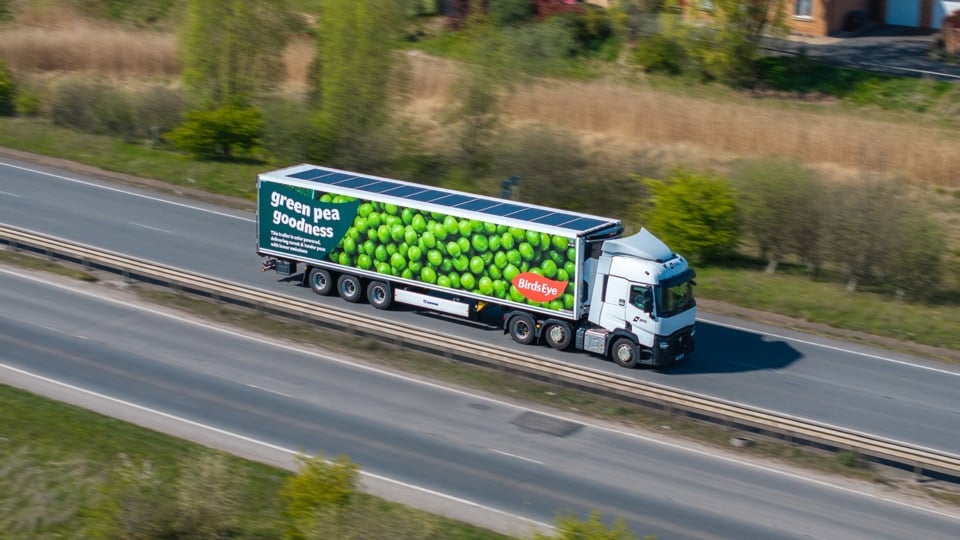Birds Eye is rolling out two new solar-powered refrigerated trailers to transport thousands of tonnes of product each year.
The initiative has been made possible thanks to a partnership with European shipping and logistics firm DFDS and British sustainable-powered refrigeration specialists Sunswap,
The trailers will feature roof-mounted solar panels that work alongside Sunswap’s battery system to power the refrigeration units.
By adopting Sunswap's electric transport refrigeration unit, Birds Eye will eliminate around 24 tonnes of carbon dioxide emissions annually from its supply chain.
The new trailers will be responsible for transporting BirdsEye products predominantly from Birds Eye’s production facility at Lowestoft toits distribution hub at Wisbech.
Shaun Smith, general manager of Birds Eye UK and Ireland, said: “We’re delighted to be working with DFDS and Sunswap to help reduce the environmental impact of our operations.
“Sunswap's proven electric technology enables us to maintain the highest standards of temperature-controlled transport while helping reduce our carbon emissions.
“It’s fitting that the technology we’re now using to support the running of these trailers uses the same sun that ripens our peas to perfection in the field, keeping our products frozen at their peak as they start their journey to millions of UK homes.”
Michael Lowe, CEO of Sunswap, added: “This collaboration with an industry food leader like Birds Eye confirms that our British-engineered and manufactured system not only matches the performance and reliability needed for temperature-critical food transport, but goes further by reducing direct emissions and helping cut operating costs.”
This partnership marks the latest step in Birds Eye’s commitment to driving sustainability within its operations and builds on its progress in reducing carbon emissions across its value chain.
The partnership reflects a broader industry movement toward sustainable cold chain operations, with both Birds Eye and Sunswap participating in the Move to -15°C coalition, which aims to reduce energy consumption in frozen food transport and storage through optimised temperature management.





















Login to comment
Comments
No comments have been made yet.